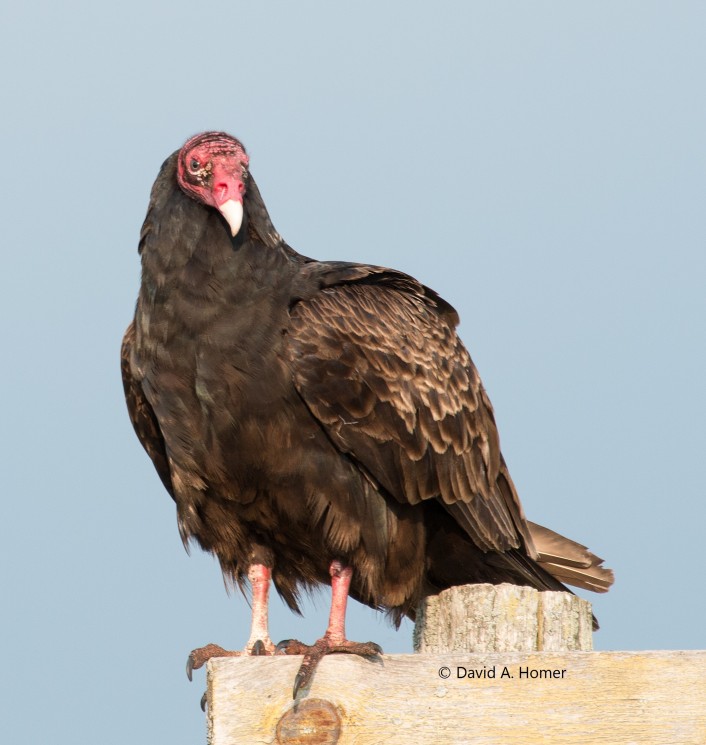It was a sight to behold! I certainly couldn’t count them all as they were in constant motion, but there must have been well over a hundred. With wings and body forming a dihedral shape, they soured. A kettle of Turkey vultures drifting almost effortlessly. They were at eye level from my vantage point on the side of a volcanic ridge, overlooking the Central Valley of Costa Rica.
Undoubtedly, many of these individuals had spent the previous summer months in North America, but other than in migration, we don’t see them in such large numbers.
Turkey vultures have not been our summer visitors for many years. Forty to fifty years ago they were not sighted in Ontario, but their numbers have increased dramatically since the 1950’s, linked partly to an increase in the food supply.
They are not the kind of bird most of us would want a painting of hanging in our living room, but they are beautifully created for the kind of work they do! Turkey vultures are scavengers. I like to call them, “the clean-up crew”! Their diet consists almost entirely of carrion-dead animals and birds the result of road kill and farm machinery accidents.
Their heads are devoid of feathers which would be a hindrance for them as they would get totally mangled and sodden with blood from their eating habits. Having only a skin head, allows them to dig right into the body cavity of the deceased, and pick the bones clean!
Turkey vultures ‘ huge wings, at almost two metres, allow them to sore effortlessly on the thermals, and with their keen sense of smell, locate decaying carcasses on the ground.
These birds tend to form scanty “nests” on the ground, in crevices, rocky outcrops or fallen trees and inside vacated barns and outbuildings. Venturing into such a location where there is a nest is not advised, unfortunately I can speak from experience- it stinks, as do the birds themselves, reeking of decay. Dead skunks make up a significant part of the diet. If one were to get too close to them, they will hiss and regurgitate the vile smelling contents of their stomach!
Their behaviour sounds pretty disgusting, but they provide a very useful role in controlling disease and keeping our land clean.
Watch for them on fence posts, signs or the ridge of a barn with wings spread wide open as they dry themselves of rain and dew, first thing in the morning or soaring across open agricultural land.
Written by David A. Homer.

